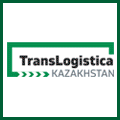Offshore wind development, alternative fuels, decarbonization and new role of sea ports during industrial transformation were the main topics discussed during the Baltic Ports for Climate Conference 2024 which was held on 29-30 October in Tallinn, Estonia. The second edition gathered international experts in the fields who talked about the most ongoing matters in the port sector in the context of climate challenges.
The moderator of the conference, Dorota Książkiewicz (University of Gdańsk) welcomed the participants and introduced the main topics of the event. On the part of the organizers, the event was opened by Bogdan Ołdakowski (Baltic Ports Organization) and on the part of the host - Valdo Kalm (Port of Tallinn).
Baltic Ports Organization would like to thank
the Host of the conference for a successful edition:

Session I
Ugis Zanders (Council of the Baltic Sea States) in his keynote speech underlined that ports are the ecosystems working in symbiosis with other systems, especially since 40% of the commodities going through ports are energy-related. He dedicated a part of his presentation to discuss the importance of Green Shipping Corridors which are a booster for energy transition in the Baltic Sea Region. GSC are also one of the main priorities of the Estonian Presidency 2024-2025 of the Council of the Baltic Sea States.
Ole Angell and Giulia Sforzi (HR Wallingford) spoke about the demands and challenges of offshore wind development. They mentioned the Marienborg Declaration, the purpose of which is to accelerate the development of offshore wind energy and to co-ordinate and optimize activities leading to full energy potential of the Baltic Sea: increase sector integration, transmission/pipe-line infrastructure, increase renewable fuels, electrify industry, decarbonise gas networks and green hydrogen economy. What is crucial is that the developers, authorities/regulators, investors supply chain and ports need to work hand in hand and across borders to make this a success.
Discussion panel: 'Role of ports as hubs for new energy carriers in context of actual demand and eventual reduction of fossil fuel handling' opened a debate between representatives of two sea ports representatives. Katarzyna Gruszecka-Spychała (Port of Gdynia) noted that the change in the role of ports in the context of energy carriers is already taking place, but it is more significant to actively participate in this change, or even to be its initiator. She also underlined the importance of seeing a wider view. Creating and adhering to regulations is necessary, but in parallel with responding to social changes as the young generation pays great attention to green products, even if their quality is lower and the price is higher. The speaker also stressed the need to cooperate not only with terminals and operators etc. but also international organizations like BPO. Rene Pärt (Port of Tallinn) shared the port's tasks that it is now focusing on: electrification, alternative fuels and digitalization. Close cooperation of many entities (Green Shipping Corridors were an example) was a common denominator among the interviewees, as well as emphasizing the role of appropriate education in fields related to climate changes and challenges.
Kamil Jagodziński (Race For The Baltic) presented the Swedish NGO whose mission is to improve the health of the Baltic Sea and a specific target is eutrophication (excess of phosphorus and nitrogen). The organisation recently created a special catalogue as a way to implement general rules with regards to environmental protection included in Polish port regulations and environmental codes\policies. The document was formed after conversations with all stakeholders involved: port authorities, terminals, maritime offices, ministry, port masters, environmental experts. Its aim is to incorporate it into internal rules and procedures in port authorities in Poland. Ports of Gdańsk, Gdynia and Elbląg have already published the catalogue on their websites.
Baltic Ports Organization would also like to thank
the Substantive Partner of the conference for a great support:

Session II under the patronage of Bellona Europa, Substantive Partner of the conference
Janis Volberts (Bellona Europa) spoke about a potential of ports in the context of Carbon Capture and Storage (CCS) as the organisation announced last year a new FedEx-backed initiative Ports2Decarb – a project aiming to maximise the role of European sea and river ports in building the infrastructure needed to support industrial decarbonisation. The team focuses on collaboration with ports, maritime sector, industrial hubs, civil society, and others, events held at various locations, including ports, policy and funding solutions (establishing a narrative and writing a report with specific recommendations), support the implementation of recommendations, facilitate access to funding mechanisms and communication activities for awareness-raising and knowledge-sharing.
Ole Rom Andersen (Greenport North) spoke about building the import/export CCS hub in Port of Hirtshals as the company works to generate green energy sources for blue business, and to make the Port an internationally known pioneer in sustainable port development. The next discussed examples were Project Greensand - offshore storage of CO2 in the Danish part of the North Sea (March 2023: First CO2 storage) and Greenstore - onshore storage located at Gassum (storage potentially starting from 2029).
Discussion panel: 'The role of ports as Carbon Capture and Storage (CCS) hubs in decarbonising heavy industry' created a platform to talk between different stakeholders. Steen H. Hintze (Greenport North) presented his and the company's experience as a front runner in the field - it's all about searching, researching and trying new solutions in this quick and dynamic world these days. He also emphasized that although the port has always been a market place, it is time for higher goals. The key is not competition, but cooperation based on joint search and implementation of solutions beneficial to all parties. Staffan Forsell (Ports of Stockholm) added that we are currently facing many uncertainties and the only way is to spread risks and opportunities. Evita Gosa (SCHWENK Latvija) stressed the need to cut the emissions, especially that 2/3 of them are chemicals and1/3 are fuels. She admitted that obviously some emissions are inevitable but here comes the role of CCS. According to her, we shoud focus more on CO2 utilization, than on its storage. Erika Laajalahti (The Bioenergy Association of Finland) continued the thread about removing CO2 from atmosphere although nowadays there are still not many ways to do it. Therefore she believes that industrial solutions in this matter are crucial.
Baltic Ports Organization would also like to thank the Media Partners of the conference for their support in promoting the event:


Session III
Kaj Portin (Wärtsilä) admitted that infrastructure and availability of green fuels need time to mature especially since the development for future fuels continues. Methanol is available at over 120 ports worldwide, more than 90 methanol production facilites around the world with 120 million tons of production capacity and according to IRENA, methanol production is expected to five-fold increase to 500 million tons by 2050, out of which 80 percent will be ultra-low carbon e-methanol or bio-methanol. Both the demand and supply of methanol will increase. The speaker underlined that decarbonising of the marine sector is urgent and requires a wide range of measures. A successful development requires expertise and actions from many contributors. Fuel flexibility secures a future proofed solution.
Jan Schubert (Avenir LNG) presented an experience of a leading LNG bunker supplier in Northwest Europe. The company started the supply of LNG to marine customers in the Baltic Sea in Q2 2022. Therefore only within 2 years, Avenir has become the largest supplier of LNG in the Baltic Sea area and a leading LNG transport and bunker service provider in Northwest Europe. They made 250 bunker and transport operations in 2024 (200,000 cbm LNG handled in 2024). He admitted that most alternative fuels are far away from global implementation but LNG & bio-LNG are the cheapest options to be compliant and shipping companies are already shifting to bio-LNG. During his speech, it also came out that bio-LNG has the lowest lifecycle GHG emissions.
Discussion panel: ‘Alternative fuels and how they stack up against each other when planning new fleet investments' touched upon one of the key topics currently. Kaj Portin (Wärtsilä) stated that it will be easier for those who have used gas so far to switch to alternative fuels. He also raised the issue of the high prices of these solutions and the need for financial support of EU institutions.
Jan Schubert (Avenir LNG) agreed on the issue of high costs but also brought up the issue of maintenance of safety procedures. Andrus Vaher (Tallink Group) added that the topic is still so new that there are many risks and uncertainties that are needed to be taken into account by all parties, also politicians and different legislative intitutions.
Baltic Ports Organization would also like to thank the Moderators
for the interactivity of all presentations and discussion panels:
- § Dorota Książkiewicz, Assistant Professor, University of Gdańsk
- § Michał Wendołowski, Senior Manager Climate Technology and Policy (CEE), Bellona Europa

Source, Baltic Ports Organization



.jpg)






